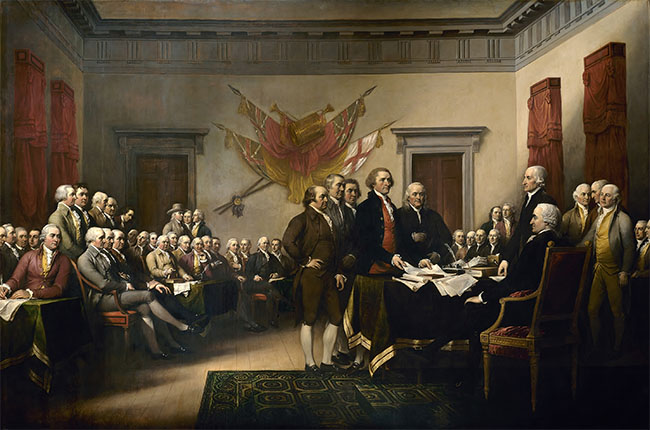
No matter how old we are, or whatever state we’re from, haven’t we all learned in our grammar school history classes that there’s nothing more sacred in being an American than the words in the Declaration of Independence that “all men are created equal.” Historians today correctly teach it should be interpreted, as “all people are created equal.” So if it’s true, that this is our most sacred proclamation then why are there still so many problems between races, classes and religions? The obvious answer is ignorance. But after these hundreds of years of war, turmoil and struggle to make that proclamation real, there has to be more to it. Of course no one is equal in height, weight, age, color, intellect, social status or any individual thing that creates diversity in the world, but we are equal in our citizenship, in our right to pursue life, liberty and happiness and that’s the point. So, what besides ignorance makes Americans squabble about the same nonsense since our inception? It might simply be that not enough of us really do believe in the D of I, or accept its premise with its underling “malice toward none” tone.
When anyone from one race, class or religion sees someone from another expressing themselves in an outrageous, complaining way, that might seem completely at odds in a country with the D of I as its foundation; that’s the time to take a deep breath, step back and give that person the benefit of doubt. Their actions (and feelings) might be exactly how anyone would act had they been in their shoes. The problem might be that all the labels, social and religious beliefs that come with parochialism (where we are born) are the cause.
If I was born where they were, into the same religion, within their race, then ‘maybe’ I would feel the way they do. That’s a good place to start! It means one’s personal history and geography play a huge part in how someone feels, thinks and behaves. “My God, . . .” I sometimes think as a member of the white race given all the privileges this nation has to offer often at the expense and welfare of others, “ . . . how can some white people be so naïve and heartless?” Where is their empathy? But all persuasions are capable of good and bad and that’s the bigger point.

Thank you for this important and thoughtful post. Several years ago I committed to memorizing the first part of the Declaration of Independence. I’ve often thought that if I were a history teacher I would make it mandatory for my students to do the same.
“We hold these truths to be self-evident, that all men are created equal, that they are endowed by their Creator with certain unalienable Rights, that among these are Life, Liberty and the pursuit of Happiness.”
According to Wikipedia, this has been called “one of the best-known sentences in the English language”, containing “the most potent and consequential words in American history”. Apparently I’m not the only one who finds the document inspiring. Its influence on the French Revolution is well documented. Again according to Wikipedia, some other countries that used the Declaration as inspiration or directly copied sections from it is the Haitian declaration of January 1, 1804 from the Haitian Revolution, the Argentine Declaration of Independence in 1816, the Chilean Declaration of Independence in 1818, Mexico in 1821, California Republic in November, 1836, Hungarian Declaration of Independence in 1849 and the Declaration of the Independence of New Zealand in 1835.
Well spoken my friend. I couldn’t agree more. Thanks!